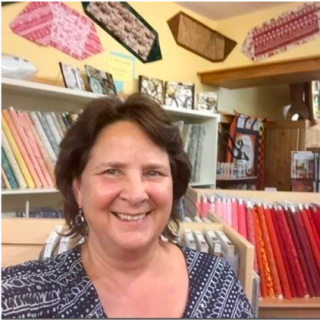The Joy in the Spiritual Work
By Commission On Institutional Change, Mary Byron
Commission on Institutional Change Guiding Principle: To keep Unitarian Universalism alive, we must privilege the voices which have been silenced or drowned out and dismantle elitist and exclusionary white privilege which inhibits connection and creativity.
My UU faith has been an important part of the spiritual journey of my life. I believe in our principles and our way of expressing them publicly, advocating for the world of justice, equity and compassion we know is possible. And we know this world is not yet here which calls us into doing the work that is needed to create it.
This is one part of why I do anti-racism work. It may be a simple statement to say my faith calls me into action and it is sometimes not so easy to live. As a white person, I have needed to do a lot of deep spiritual work on myself. Unlearning the ideas of supremacy that I have absorbed from our culture is so much harder than learning about injustice yet I know we won’t move away from our comfort in white supremacy until we unlearn and dismantle it in our lives. Arundhati Roy said, “The trouble is that once you see it, you can’t unsee it. And once you’ve seen it, keeping quiet, saying nothing, becomes as political an act as speaking out. There’s no innocence. Either way, you’re accountable.” When I moved past claiming my innocence in building these systems and denying their racist intent to see them, really see how they operate, I couldn’t unsee their injustice. It is in the news every day, everywhere.
Keeping quiet, doing nothing isn’t an option for me in a faith that proclaims that we respect the inherent worth and dignity of all people. There is no dignity in economic, housing, justice, immigration, environmental and education systems that create such inequitable outcomes. White people built these and white people are required to dismantle these unjust, inequitable and cruel systems, to completely transform them. I knew I couldn’t do this transformational work unless I was willing to get uncomfortable, to start by acknowledging my role in our systems and the ways I participate in upholding our dominant white culture — conflict avoidance, assuming that good intentions are enough, denial, tokenism, white savior behavior…It is hard to see these things in myself but I need to see it and change it, in order to live into the principles I believe. This is a part of my spiritual practice. I practice humility and forgiveness for myself and my community as a spiritual work when we engage in dismantling white supremacist systems. I recognize I am going to make mistakes and I also know how I will acknowledge them and try to repair the harms. I try not to let the fear stop me and to stay curious about when and where my discomfort arises. Every time I make a new discovery about my thinking that releases limiting thoughts and behavior, I feel more free and that is also spiritual work.
I also do this work because I find such joy in the community of people engaged here. The guiding principle above speaks to how white supremacy culture inhibits connection and creativity. Breaking down my personal barriers and connecting with people is liberation for my heart. Superiority feeds our egos and it shrinks our hearts and I don’t want to live in a small-hearted world. My joy comes from belonging in a community with big-hearted, creative, welcoming people. Working with people of imagination and with a willingness to come together to build a more just and generous faith community is life-affirming. Learning from the variety of lived experiences and perspectives of people in different communities and congregations enlarges my dreams of what is possible and grounds them in what is necessary.
Lastly, I do this work because I am so curious about what we might yet build together. My fellow commissioner, Reverend Dr. Natalie Fenimore speaks of dreaming of a Unitarian Universalism that does not yet exist. None of us know what transforming our congregations into truly multicultural expressions of our faith will be. I relish the opportunity to create something new and this is what keeps me in this work with you.
Deepening Spiritually
Read this insightful article by Tema Okun (PDF) on the lifelong journey from white racist to white anti-racist:
In a small group, with a partner or in your journal, locate yourself on the ladder in the present moment and recall instances when you have moved around the ladder. When you are experiencing discomfort in conversations about race, return to this framework and reflect on where you might be now.
